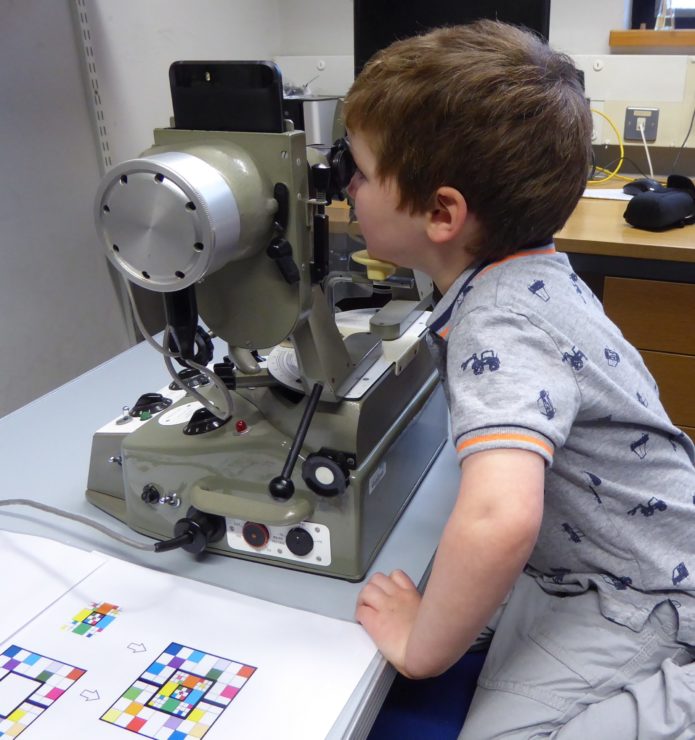One million children in the UK are estimated to have an undetected eye condition, and most of these are due to focusing and eye alignment problems such as squint and “lazy eye”. Although poor vision can have profound consequences on learning and development, how focusing, common eye problems, learning and development interact are very poorly understood.
Professor Horwood’s work on ocular accommodation and convergence, undertaken since 2006, aims to explain these complex processes. She sits on national and international committees, advisory and lobbying groups, and engages with media such as ITV, BBC radio and the local press. She has delivered keynote lectures around the world and won major international prizes, most recently being the first woman to win the Bielschowsky Lecturer International Strabismological Association (ISA) Congress, Washington award for “a strabismologist who has made outstanding contributions to the science”. Most importantly, practising clinicians have benefitted, thanks to a series of retinoscopy courses in the UK and Ireland that began in 2016 and are continuing this year. These “research into practice” courses are showing how Reading’s research can help clinical orthoptists understand and manage their patients differently.
Shortlisted for the University Research Engagement and Impact Awards 2017
First published: June 2017

